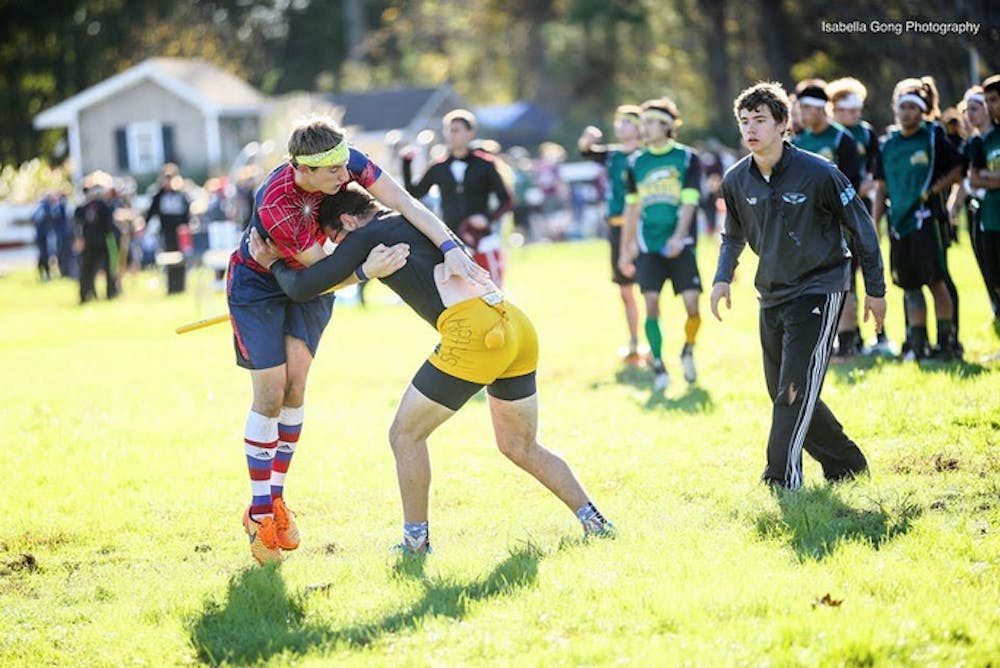The word "Quidditch" typically invokes images of beaters, chasers and seekers from the "Harry Potter" series. Few think of concussions, broken bones, torn ligaments and stitches in the same breath as chasing the golden snitch, but Quidditch can in fact be a fairly dangerous sport.
At a recent practice, a stray snitch scratched senior Dan Waddell, seeker for the team, directly above his eye. The snitch is depicted as a tiny, quick ball in Harry Potter lore, but in the sport of real-world Quidditch, the snitch is a human being who must avoid having a sock of tennis balls attached to his or her shorts pulled off by the seeker.
The snitch can push, grab and run to avoid being caught, and the snitch that Waddell attempted to catch fought valiantly. Wendy Sheppard, Richmond's head sport club athletic trainer, examined Waddell's scratch after a timeout was called and quickly recognized Waddell’s need for stitches.
This was not the first time this season that Waddell had gone to the hospital to get stitches. Last semester, he suffered a concussion, a severe cut and a corneal abrasion, a cut on the cornea of his eye. He said injuries were the worst part of Quidditch.
The Quidditch team is not alone in its injuries. Sheppard said Richmond's Quidditch team and the women’s ultimate frisbee team were tied for the second most injuries in club sports. Men’s rugby places first with almost twice as many injuries.
The Quidditch team has a high rate of knee and ankle injuries, and ACL tears are not uncommon. The sport is rough because players subject their bodies to aggressive tackling and quick changes of direction.
Snitches have gotten larger and more aggressive over the years, and some believe that teams are deliberately seeking out those with past wrestling or football experience. Because Quidditch is a relatively new sport, there is hope that, with commitment to safety and research, new rules will make the sport safer for players.
Contact sports writer Lauren Onestak at lauren.onestak@richmond.edu
Support independent student media
You can make a tax-deductible donation by clicking the button below, which takes you to our secure PayPal account. The page is set up to receive contributions in whatever amount you designate. We look forward to using the money we raise to further our mission of providing honest and accurate information to students, faculty, staff, alumni and others in the general public.
Donate Now



